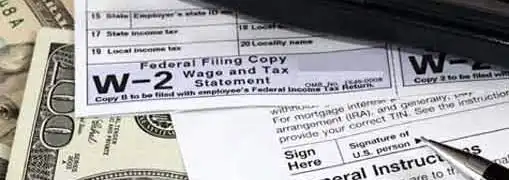Small Business Tax Tips
Tax Extensions
If you are pressed for time when taxes are due, consider a tax extension. It's a snap to get a tax extension and there are no tax penalties for buying a little extra time.
Tax day comes the same day every year, but for one reason or another millions of individual taxpayers and businesses fail to get their paperwork and payments into the IRS by April 15th.

Fortunately, the IRS isn't as hard-hearted is most people think. For late filers, the relief they offer is called a tax extension and getting one is probably easier than you think.
It's important to keep in mind that a tax extension does not relieve you from the burden of filing your tax forms and paying the taxes you owe. Instead, a tax extension simply gives you more time to complete your tax return and file it with the IRS. Since the IRS doesn't like surprises, you'll still have to keep them apprised of your situation by April 15th and play by their rules regarding late filings.
How do I get a tax filing extension?
The application process for a tax extension is relatively simple and painless.
If you realize you will not be able to file your tax return on time or if your tax preparer advises you that there is advantage to filing late, all that needs to be submitted to the IRS is a single form.
Since many small business owners are sole proprietors who report their business income on their individual tax return, the form you will probably need to complete is Form 4868. Once Form 4868 has been filed, the IRS grants you an automatic six month extension. The new due date for your tax return will be October 16th.
Can I get a payment extension, too?
Tax extensions are a courtesy the IRS extends to late filers. However, the IRS is not so courteous when it comes to actually paying the taxes you owe.
Although a tax extension delays the deadline for filing your return, it does not delay the deadline for payment. Like it or not, your payment deadline will still be April 15th.
But isn't the point of a filing extension that you haven't completed your return yet? How are you supposed to know how much you need to pay by April 15th?
The fact is you usually don't know exactly how much you owe when you file an extension, but your tax preparer should be able to come up with a ballpark figure. So the IRS requires you to pay a good faith estimate on or before April 15th. If you have the money, write the check and be done with it. If you don't have the money by April 15th, be prepared to incur late penalties and interest.
Do tax extensions trigger audits?
A lot of small business owners avoid filing for extensions based on the misperception that an extension filing automatically triggers a tax audit. In reality, nothing could be farther from the truth.
As long as you pay your taxes on time, the IRS views filing extensions as a perfectly acceptable filing practice. Besides, there is a significant lag time between the April 15th filing deadline and the audit review process. By the time the IRS gets around to your account, your return will already have been prepared and neatly filed in the IRS archives.
Share this article
Additional Resources for Entrepreneurs



Conversation Board
We greatly appreciate any advice you can provide on this topic. Please contribute your insights on this topic so others can benefit.